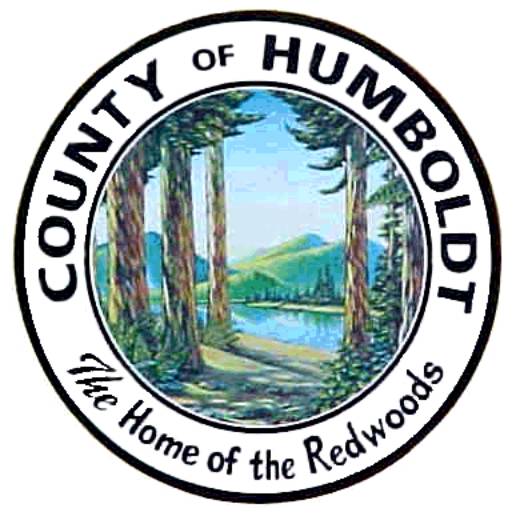 The Humboldt County Board of Supervisors today decided to move forward with placing an excise tax on marijuana cultivation on the November ballot, but not before cutting the proposed fees by 25 percent. The county recently paid for polling of likely voters, with results showing widespread support for such a tax, and staff had estimated that the tax could generate more than $14 million in annual revenues for the general fund.
The Humboldt County Board of Supervisors today decided to move forward with placing an excise tax on marijuana cultivation on the November ballot, but not before cutting the proposed fees by 25 percent. The county recently paid for polling of likely voters, with results showing widespread support for such a tax, and staff had estimated that the tax could generate more than $14 million in annual revenues for the general fund.
In a presentation to the board, Miranda Everett of polling firm Fairbank, Maslin, Maullin, Metz & Associates said that after calling a representative sample of likely voters in each of the county’s five supervisorial districts they found that nearly three quarters of local residents support taxing weed cultivation. (They ranged in enthusiasm from “definitely” to “probably” to “lean yes.”)
Support was highest in cities, such as Eureka and Arcata, and while it was a bit lower in the notorious pot-growing regions of eastern and southern Humboldt, roughly 70 percent of poll respondents there still voiced support for a weed tax.
There was much discussion at today’s meeting about how much should be charged with these proposed taxes. County staff had proposed a progressive tax with the lowest rate ($1 per square foot) levied on small, outdoor grows and the highest ($6 per square foot) levied on large, indoor grows. Mixed-light grows, under these staff proposals, would fall in the middle, ranging from $1.50 per square foot for grows smaller than 2,500 square feet up to $4.50 per square foot for grows up to 22,000 square feet, the maximum allowed under the county’s Medical Marijuana Land Use Ordinance. (The tax is designed to extend to recreational weed, too, since that’s also likely coming in November.)
But today Second District Supervisor Estelle Fennell said it’s important to be aware of taxes that will be levied at the state level and “not overdo it” with local taxes. The Adult Use of Marijuana Act slated for this year’s ballot would implement a 15 percent sales tax on cannabis. Locals are focused on a cultivation tax since, as staff noted, we produce and export more of the stuff here that we sell.
During public comment, several people involved in the industry advocated for lower fees. Ian Herndon, president of Humboldt Boutique Gardens, said that while the name “Humboldt” carries a lot of weight around the state, over-taxing the weed industry here could smother it. “I encourage slow and low for tax rates,” he said. “If we’re not able to compete there will be no industry to be taxed.”
Steven Dillon of the Humboldt Sun Growers Guild sounded a similar note, saying the growers who are coming out of the shadows are already being subjected to fees for land use and water permits. First District Supervisor Rex Bohn didn’t express much sympathy, noting that every law-abiding farmer, timberman, dairyman and the like would say, “Welcome to my world.”
But Fennell noted that Humboldt is the only county in the state moving forward with a tax like this, which will put local growers at a competitive disadvantage.
Fifth District Supervisor Ryan Sundberg suggested lowering the proposed tax rates. “Even with a lower rate, if in five, 10 years if we get anywhere close to the numbers that are out there [in projections], this county will not have any money issues,” he said.
Fennell floated a suggestion of dropping the fees by 25 cents across the board, at each level of the progressive tax. After some discussion with fellow supervisors, Bohn said that if it’s gonna be lower he’d prefer it to be a 25 percent cut across the board, rather than 25 cents. Sundberg agreed, and that’s how the item ultimately passed.
There was one more change thrown in: Board Chair and Third District Supervisor Mark Lovelace asked about tying the tax rate to the consumer price index, so that it won’t gradually decrease in relative value due to inflation. County staff said that it’s possible to include such a provision in the tax measure, but it will have to be worded carefully. In their motion, supervisors directed staff to work on that language before bringing the item back to the board on July 19, at which point the ordinance will be introduced in preparation for being put on the ballot.
If you’d like to calculate the proposed fees in more detail, click the staff report link right here, scroll down to page four and subtract 25 percent from all the figures in the right-hand column.
In another matter, the board directed staff to develop an ordinance prohibiting “aggressive and intrusive solicitation,” modeled on the anti-panhandling ordinance recently passed in Eureka. Lovelace proposed adding a couple of small changes to the language of the ordinance, slightly broadening a couple of definitions to include “advertising” and “indirect” solicitation among the prohibited activities. But the rest of the board wasn’t interested in those changes, and the item passed by a vote of 4-1 with Lovelace dissenting.
CLICK TO MANAGE